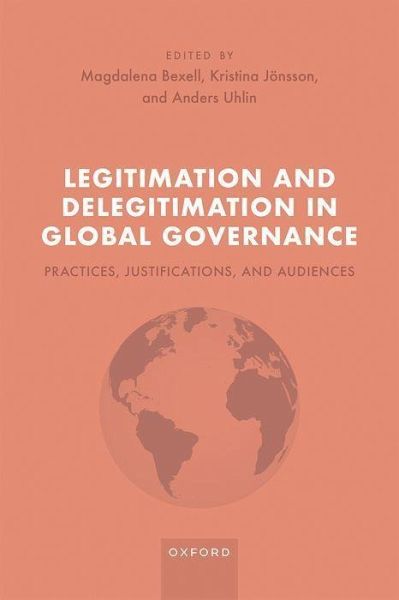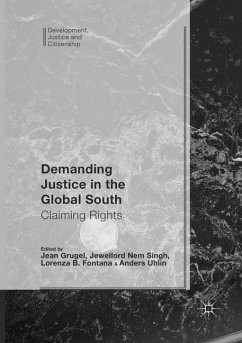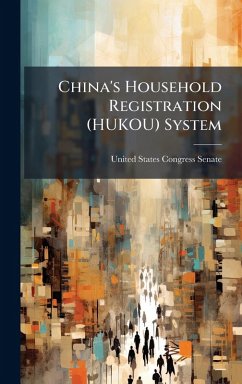
Gebundenes Buch
Legitimation and Delegitimation in Global Governance
Practices, Justifications, and Audiences
Herausgeber: Bexell, Magdalena; Uhlin, Anders; Jönsson, Kristina
Versandkostenfrei!
Versandfertig in über 4 Wochen

PAYBACK Punkte
56 °P sammeln!




This book explores processes of legitimation and delegitimation of global governance institutions. It develops a comprehensive theoretical framework for studying processes of (de)legitimation in governance beyond the state.
Magdalena Bexell is Associate Professor at the Department of Political Science, Lund University, Sweden. Her main fields of research are international relations, global governance, sustainable development politics, and human rights. Recent research projects concern legitimacy in global governance with a focus on the politics of legitimation and delegitimation. Another strand of her current research explores governance processes at the global-national nexus related to the United Nations 2030 Agenda for sustainable development. Kristina Jönsson is Associate Professor at the Department of Political Science, Lund University, Sweden. Her research concerns international cooperation in the broad field of development focusing on governance issues, policy processes, and global-local linkages. Current research deal with legitimacy and responsibility in global governance, with a special focus on the United Nations' Sustainable Development Goals and global health. Her previous work concentrated on politics and policy-making in South-East Asia. Anders Uhlin is Professor at the Department of Political Science, Lund University, Sweden. His research focuses on civil society activism and processes of legitimation and delegitimation in global and regional governance, with a particular focus on Southeast Asia. Another strand of current research concerns the development of civil society elites in Cambodia and Indonesia as well as in Europe. He has previously explored civil society and problems of democratization in Indonesia and the post-Soviet context.
Produktdetails
- Verlag: Oxford University Press
- Seitenzahl: 302
- Erscheinungstermin: 19. Dezember 2022
- Englisch
- Abmessung: 241mm x 163mm x 22mm
- Gewicht: 653g
- ISBN-13: 9780192856111
- ISBN-10: 0192856111
- Artikelnr.: 66164146
Herstellerkennzeichnung
Libri GmbH
Europaallee 1
36244 Bad Hersfeld
gpsr@libri.de
Für dieses Produkt wurde noch keine Bewertung abgegeben. Wir würden uns sehr freuen, wenn du die erste Bewertung schreibst!
Eine Bewertung schreiben
Eine Bewertung schreiben
Andere Kunden interessierten sich für











